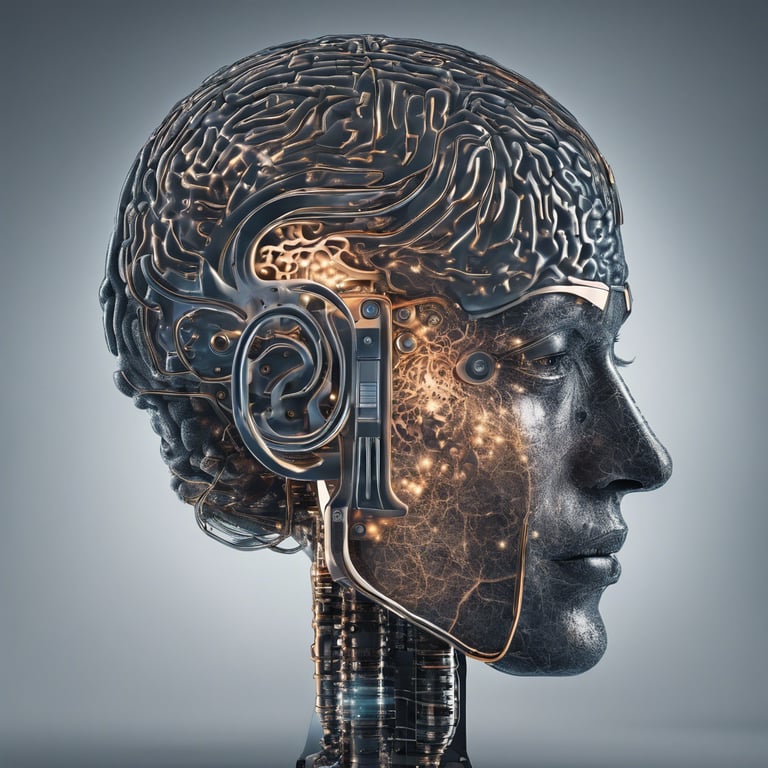AI in Education: A Call for K-12 AI Literacy and Ethical Standards
Artificial intelligence is advancing at an unprecedented pace, yet our education system has failed to keep up. Without structured AI literacy and ethical education, we risk creating a generation that is either unequipped to navigate AI’s complexities or worse—uses it in ways that harm society. This post explores why AI education must be integrated into K-12 curriculum as a core competency, just like literacy and mathematics. It also highlights the critical role of social-emotional learning (SEL), executive functioning skills, and ethical decision-making in ensuring AI serves as a tool for progress rather than a force for division. The consequences of inaction are severe—AI illiteracy and unethical use could lead to misinformation crises, bias-driven decision-making, and the erosion of human connection. We must act now. Read on to understand the urgent need for AI education standards, the role of policymakers, educators, and school leaders, and the practical steps needed to ensure AI strengthens, rather than weakens, the fabric of our society.
DARE TO LEAD
Shannon Schumm
2/1/20254 min read


AI in Education: A Call for K-12 AI Literacy and Ethical Standards
Introduction
Artificial Intelligence (AI) is rapidly reshaping industries, economies, and the way people interact with technology. However, education has lagged in preparing students for AI’s ethical and practical use. As AI continues to advance, the question is no longer whether it will impact students’ futures—it is how they will navigate and leverage it responsibly.
Despite AI’s transformative potential, it is being done to education rather than integrated into it. Without structured AI education, we risk producing a generation of students who are either technologically illiterate or who use AI in unethical and damaging ways. To prevent this, K-12 education must include AI literacy, social-emotional learning (SEL), and executive functioning skill development to ensure students are equipped with the knowledge and ethical framework to use AI as a tool for positive transformation.
The Need for AI Literacy and Ethical Education
AI as a Core Competency, Like Literacy & Numeracy
Just as reading and mathematics are fundamental skills, AI literacy must be treated as an essential competency. AI is embedded in nearly every industry, influencing decision-making in healthcare, finance, security, education, and beyond. Yet, K-12 education does little to equip students with an understanding of AI’s strengths, limitations, and ethical considerations. If AI is to be a fundamental part of their world, students must be taught how to navigate and use it responsibly.
The Risk of AI Ignorance & Unethical Use
Without structured AI education, students may inadvertently contribute to misinformation, bias, or unethical AI use. Consider the potential dangers:
AI-generated misinformation could manipulate public perception and elections.
Unchecked bias in AI algorithms may perpetuate discrimination in hiring, policing, and healthcare.
Students may misuse AI for academic dishonesty rather than as a learning enhancement.
Ethical dilemmas surrounding deep fakes, surveillance, and data privacy could go unrecognized.
Without proper guidance, students risk becoming passive consumers of AI rather than critical users who shape its impact.
Trauma-Responsive Frameworks and SEL Integration in AI Education
AI education must go beyond coding and machine learning—it must include social-emotional learning (SEL) and executive functioning skills. The role of SEL in AI education is twofold:
Developing Ethical Awareness: Students must learn to recognize how AI impacts human dynamics, decision-making, and societal well-being.
Ensuring AI Enhances, Not Replaces, Human Connection: The best AI applications augment human intelligence rather than replace relationships, empathy, and ethical judgment. Trauma-responsive education ensures that students understand how to leverage AI while maintaining authentic human interactions.
The Case for AI Education Standards
AI Must Be a Formal Part of K-12 Curriculum
Technology standards in schools are outdated and do not reflect the rise of AI. While some schools introduce coding or digital citizenship, AI literacy remains an afterthought. States must develop and implement AI-technology-ethics standards, treating them with the same priority as literacy and mathematics.
AI literacy should be scaffolded across grade levels:
Elementary: AI awareness and responsible technology use.
Middle School: AI in decision making, bias, misinformation, and real-world applications.
High School: AI ethics in decision-making, problem-solving, and career readiness.
What AI Education Should Include:
AI Functioning: Understanding how AI works, its capabilities, and limitations.
Ethical AI Use: Navigating privacy, consent, misinformation, and bias.
AI & Social-Emotional Learning: Recognizing AI’s impact on relationships and society.
AI for Problem-Solving: Using AI to enhance creativity, innovation, and real-world problem-solving.
A Framework for AI Education Policy
To ensure effective AI integration in education, schools need a structured, multi-tiered approach that includes:
K-12 AI Literacy Standards: Clear, developmentally appropriate guidelines on AI learning.
SEL & Ethical AI Integration: Embedding ethical discussions and SEL-based AI training into various subjects.
Professional Development for Educators: Training teachers on AI literacy and ethical considerations.
Collaboration with AI Experts and Policymakers: Engaging industry leaders and policymakers to shape AI education standards.
Call to Action: The Role of Educators, Policymakers, and Leaders
Educators, policymakers, and school leaders must act now to ensure AI is intentionally and ethically integrated into K-12 education.
Educators must advocate for AI literacy and ethical discussions in curriculum development.
Policymakers must prioritize the development of state-wide AI education standards.
Schools must equip students with the necessary AI competencies to thrive in a tech-driven future.
Practical Steps to Begin the Work
For this initiative to take shape, funding and collaboration are critical. Stakeholders must:
Secure funding to assemble a team that will develop comprehensive AI-technology-ethics standards.
Identify financial support for states to adopt these standards and integrate them into K-12 education policies.
Develop curriculum modules that provide students with structured learning pathways to understand AI ethics, functionality, and applications.
Create professional development modules to equip teachers with the knowledge and skills to teach AI literacy effectively.
Design training programs for administrators so they can oversee AI instruction, provide teacher support, and ensure continuous improvement in AI education.
Establish metrics for success to assess student learning outcomes, track AI literacy development, and refine instructional strategies as needed.
Foster collaboration between OpenAI and state/federal policymakers to ensure that AI education remains a priority and is embedded in future policy decisions.
The next generation’s ability to engage with AI ethically and effectively will determine whether AI serves as a tool for progress or a force of harm. If we fail to provide structured AI education that includes SEL and ethics, we risk creating a population unprepared for the ethical dilemmas and responsibilities of AI. The time to act is now—education must embrace AI as a transformative core competency while ensuring students are equipped to use it responsibly and humanely.
Visit Onebiteleadership.com to connect and learn more about how to transform education to together.
Empowering parents and leaders to transform their educational communities together.
shannon@onebiteleadership.com
© 2024. All rights reserved.
